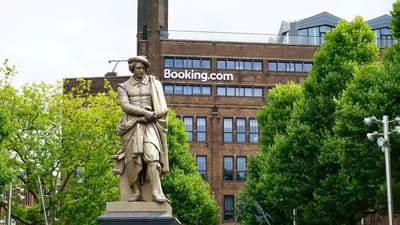The Impact of Page Load Speed on Booking Conversions
In the digital age, website performance plays a pivotal role in the success of online businesses, particularly in the travel and hospitality industry. This article delves into the significant impact of page load speed on booking conversions, highlighting the critical relationship between website performance and user experience. We'll explore various techniques for optimizing load times, discuss how speed affects user behavior and conversion rates, and introduce essential tools for measuring and enhancing website speed. By understanding the importance of fast-loading pages and implementing effective strategies, businesses can improve their online presence, increase customer satisfaction, and ultimately boost their booking conversions.Table of Contents:
-
The Importance of Page Load Speed in the Booking Process
- The Psychology of Speed: User Expectations and Behavior
- Techniques for Optimizing Page Load Speed
- Mobile Optimization: A Critical Factor in Booking Conversions
- Tools for Measuring and Improving Page Load Speed
- The ROI of Investing in Page Load Speed Optimization
- The Psychology of Speed: User Expectations and Behavior
- Techniques for Optimizing Page Load Speed
- Mobile Optimization: A Critical Factor in Booking Conversions
- Tools for Measuring and Improving Page Load Speed
- The ROI of Investing in Page Load Speed Optimization

The Importance of Page Load Speed in the Booking Process
In the competitive world of online bookings, every second counts. Studies have shown that a mere one-second delay in page load time can result in a 7% reduction in conversions. For the travel and hospitality industry, where potential customers are often comparing multiple options, a slow-loading website can quickly lead to lost business.Fast-loading pages are crucial for capturing and maintaining user attention, reducing bounce rates, and increasing the likelihood of completed bookings. Users expect instant access to information, and if a website fails to deliver, they're likely to move on to a competitor's site. By prioritizing page load speed, businesses can create a seamless user experience that encourages engagement and drives conversions.
Do you need a website? Want to build a website but don't know where to start? Our website builder is the perfect solution. Easy to use, and with the ability to customize to fit your business needs, you can have a professional website in no time.
The Psychology of Speed: User Expectations and Behavior
Understanding user psychology is essential when considering the impact of page load speed on booking conversions. Today's internet users have grown accustomed to near-instantaneous access to information, and their patience for slow-loading websites has diminished significantly.Research indicates that 47% of consumers expect a web page to load in two seconds or less, and 40% will abandon a site that takes more than three seconds to load. This impatience is even more pronounced in the mobile environment, where users often have limited time and may be dealing with slower network connections. By meeting or exceeding these expectations, businesses can create a positive first impression, build trust, and increase the likelihood of users progressing through the booking funnel.
Techniques for Optimizing Page Load Speed
Improving page load speed requires a multi-faceted approach. Here are some key techniques to consider:1. Image optimization: Compress and resize images to reduce file sizes without sacrificing quality.
2. Minification: Remove unnecessary characters from HTML, CSS, and JavaScript files.
3. Browser caching: Utilize caching to store static files locally on users' devices.
4. Content Delivery Networks (CDNs): Distribute content across multiple, geographically dispersed servers.
5. Lazy loading: Delay the loading of non-critical resources until they're needed.
6. Reduce server response time: Optimize server configurations and database queries.
7. Prioritize above-the-fold content: Ensure the most important content loads first.
By implementing these techniques, businesses can significantly reduce page load times and improve the overall user experience.
Building a website with SITE123 is easy
Mobile Optimization: A Critical Factor in Booking Conversions
With the increasing prevalence of mobile bookings, optimizing for mobile devices has become crucial. Mobile users often face additional challenges such as slower network connections and limited processing power. To address these issues, consider the following strategies:1. Responsive design: Ensure your website adapts seamlessly to different screen sizes.
2. Accelerated Mobile Pages (AMP): Implement AMP for lightning-fast mobile experiences.
3. Touch-friendly interfaces: Design buttons and interactive elements for easy mobile use.
4. Simplified navigation: Create a streamlined mobile menu for effortless browsing.
5. Optimized forms: Simplify booking forms for mobile users to reduce friction.
By focusing on mobile optimization, businesses can cater to the growing number of users who prefer to book on-the-go, ultimately increasing conversion rates across all devices.
Tools for Measuring and Improving Page Load Speed
To effectively optimize page load speed, it's essential to use the right tools for measurement and analysis. Some popular options include:1. Google PageSpeed Insights: Provides detailed performance reports and optimization suggestions.
2. GTmetrix: Offers comprehensive speed analysis and recommendations for improvement.
3. Pingdom: Allows you to test your website's speed from different global locations.
4. WebPageTest: Provides in-depth performance analysis and waterfall charts.
5. Lighthouse: An open-source tool for auditing performance, accessibility, and more.
These tools can help identify specific areas for improvement and track progress over time. By regularly monitoring and optimizing page load speed, businesses can ensure their websites continue to meet user expectations and drive booking conversions.
The ROI of Investing in Page Load Speed Optimization
Investing in page load speed optimization can yield significant returns for businesses in the travel and hospitality industry. Faster-loading pages not only improve user experience but also contribute to higher search engine rankings, increased organic traffic, and improved ad performance.Case studies have shown that even small improvements in page load speed can lead to substantial gains in conversion rates. For example, Booking.com found that a 30% improvement in page load time resulted in a 2% increase in conversions. While this may seem modest, for a high-volume site, this can translate to millions in additional revenue.
Moreover, the benefits of speed optimization extend beyond direct conversions. Faster websites tend to have lower bounce rates, higher pages per session, and increased time on site – all factors that contribute to a stronger online presence and improved customer satisfaction.





